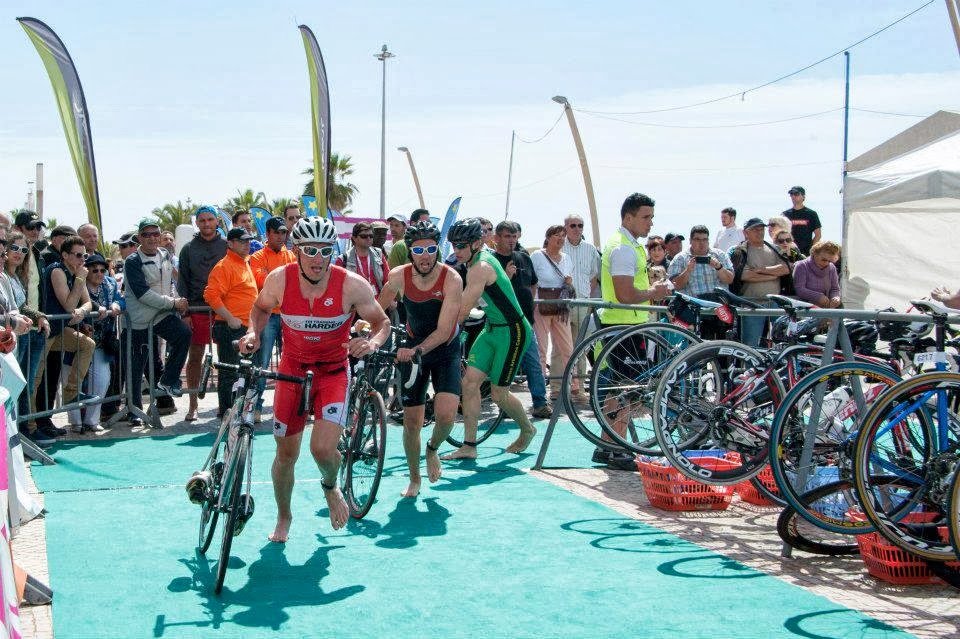How to shift mindsets when something seems to go wrong in a race
It is rare for an event or a race to go by where athletes will speak to us and say we have raced completely to the plan. In fact, most athletes can pinpoint when things deviated from the plan and why the race was curtailed. In this article, Coach Philip looks at how to manage and adapt to a change of circumstances with your response.
“All plans fail initial contact.”
This quote is often used and regularly forgotten by athletes. Many people would suggest athletes have a race plan they need to follow. However, things change, and things go wrong. How athletes respond to these changes significantly affects the overall result. When considering how a plan can be changed, athletes can successfully adapt if they understand the reasoning behind the race strategy. In other words, if you follow a plan blindly, you are unlikely to make informed decisions when you need to try and get back on track with the plan if something changes. For example, if you had a race plan which was predicting a six-hour bike split but you realise you were more likely to ride 6 hours 40 minutes because of the conditions, an athlete with good understanding will be able to start adapting the current strategy to allow for those extra 40 minutes of racing which was otherwise unplanned. This could include preparation for the run, considerations around nutrition and hydration, and additional thoughts around pacing and timings.
Often athletes get too bogged down because they aren’t now following their plan, and therefore, the race is ruined, and they miss the opportunity to make the course correction quickly. Often changes to the plans happen due to frustration instead of a prolonged change of plan, like the sample of the timing above. It may be something like a puncture or a bike mechanical, or perhaps it is a perceived quality of a swim or bike time.
Perhaps the athlete subsequently thinks their goals are now unattainable because of a “bad swim”. Having been around many different races of many different distances, it is been very clear to me that how the first two legs have gone rarely is a complete predictor of how the final element of the race will come together. In single disciplines sports, it is the same story; how the athlete has performed in the first half or two-thirds of the event will have a bearing, but is not a complete predictor, of what will happen in the final third of racing. However, athletes really have the ability to see that perspective from the race course.
Unfortunately, this means that they often make poor decisions and react to situations instead of keeping calm and cultivating an adaptable plan. Furthermore, they often focus or overly focus on their bad luck for the misfortune (for example, a puncture) for quite a long time. It is okay to be frustrated by a sudden change in circumstances, but if you then let it impact both your thinking at the time of the incident and your ability to see clearly for a few minutes after the event, you were doubling down on your misfortunes, and that is on you, not the unfortunate event!
What can an athlete do to ensure they respond in a more positive manner to unfortunate or unplanned incidents?
Firstly, athletes should understand the purpose or the reasoning behind the strategy they are following. This understanding of the main effort or focus of the plan will mean that even when the race strategy changes or the race circumstances change, you can still follow the overall intent of the plan. For example, if the aim of the race is to try and qualify for a championship event, then the overall goal has not changed, but the strategy for reaching the goal will need to be tweaked.
Athletes should try and remain calm and cool-headed. Getting overly emotional is unlikely to yield an effective response. This doesn’t mean you need to be a saint; you can, of course, be frustrated at the immediate point of something happening. Thereafter, it is time to adapt and overcome the issue in order to move forward as quickly and effectively as possible. it is also critical that athletes recognise they are rarely out of the race; the race is not over until they reach the finish line or, indeed, their competitors reached the finish line.
Think about the events and the internal dialogue differently. Athletes may often have a self-thought that questions, “Why this would happen to me?”. They will also think, “It’s unfair.”; “This is all my bad luck.”. This is absolutely true, and as it is based on probability, there is an equal chance that something else might happen later to other competitors. Therefore, every second that you spend wallowing in self-pity and not making progress in solving the problem is only losing an opportunity to capitalise on your competitor’s hypothetical later misfortunes.
Even if you are not racing anybody else and are only really racing against yourself, you could still take the opportunity to make sure you’re ready to capitalise against yourself later in the race.
Often, though, one of the best tools for an athlete to respond to any circumstance is to work and train in areas with which they may have issues. Therefore, all athletes should be competent in basic bike mechanics skills and have a good understanding of both the tools and the main methods with you’re trying to complete their goal, and they will have a much better chance of being able to adapt in the first half of the changing situation. For example, if you have a rear tyre puncture, an experienced athlete will have changed the gears to the highest gear before they stop, so they are already ready to remove the bike. Their response becomes part of their racing skills.
After all, as an athlete in a race, we only respond to the circumstances in front of us. We are very rarely able to control all aspects of the race. Therefore you need to become effective at being adaptable and mastering as many of these skills as possible.

Philip is the founder of Tri Training Harder LLP. He’s a British Triathlon Level 3 coach, and has been coaching for over a decade and is involved with mentoring and developing other coaches.
Philip has have coached athletes to European and World AG wins, elite racing, many Kona qualifications, IRONMAN podiums and AG wins.
Alongside the conventional development through many CPD courses, he has also been fortunate enough to work alongside experts in the fields of Physiotherapy, Strength and Conditioning, Nutrition, Psychology, Biomechanics, Sports Medicine. Putting this knowledge into practice he has worked with thousands of athletes to various degrees, from training camps in Portugal and around Europe, clinics in the UK and online coaching.
Visit Philip's
Coach profile
We’re here to help
Tri Training Harder are one of the leading Triathlon coaching providers in the UK, using our wealth of experience to unite scientific and technological research with already well-established and successful best practices, to create a formula for triathlon and endurance coaching that works.
The result is an honest, dynamic, yet simple new way of constructing an athlete’s training to allow them to reach their potential.
If you’re planning your next season, just starting out in the sport or are looking for extra guidance at the very top end of the field, we are here to help, and our coaches would be delighted to hear from you. You can contact us via the website, and one of the team will be in touch.

